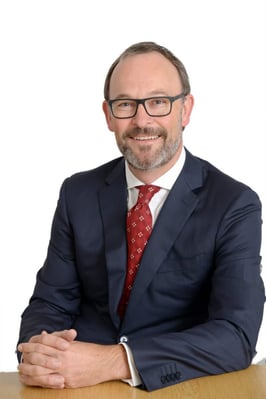by Noel Rowland *
Structured education from The Tax Institute fills a gap in the market – with a practical, applied approach that cannot be found elsewhere.
For many years, The Tax Institute provided specialised training and professional development for people who had attained their basic tertiary qualifications, usually in accounting or law, and who were already working in the tax profession. It was an offering that our members valued highly, particularly as its focus was on the practical application of tax knowledge. We eventually realised, however, that key constituents demanded more of us.
First, we were engaging too late with many tax professionals. We didn’t have a relevant, structured education program that could serve the specific needs of young, aspiring practitioners.
Second, tax employers told us that, while higher education in tax was available elsewhere, it didn’t always meet their needs in terms of training employment candidates who could immediately apply the theoretical knowledge they had acquired.
Employers knew that The Tax Institute’s training programs were designed, developed and delivered by practitioners, for practitioners. They longed for the same approach in a higher education program. That’s why, in recent years, the Institute has taken its practical, applied model into structured higher education, especially with our Graduate Diploma of Applied Tax Law.
How we’ve evolved
As The Tax Institute established its presence in the regulated tertiary education market, we have worked hard to ensure that our programs have all the intellectual rigour, systems and processes required to maintain both our accreditations and our reputation for excellence. At the same time, we have maintained our practical, applied focus.
That’s how we’ve evolved, and that’s how we’re different. We’ve responded to employers’ requests and are educating aspiring practitioners who can be productive on day one in a commercial taxation practice.
With the average length of employment, across all industries and professions, now lower than it’s ever been, employers need to hire the right people and ensure that they are productive quickly.
That’s why we’ve designed our education programs to build the capacity for almost instant productivity. It’s a great outcome for both tax employers and their employees. As one tax consultant has said: “[The Tax Institute] teaches not only theory, but also emphasises application, in contexts encountered by practitioners on a day-to-day basis.”
The Tax Institute’s Graduate Diploma or a Master of Tax degree – which is the best choice?
A Master of Tax degree offered by an Australian university is a wonderful qualification. It builds an enormous breadth and depth of knowledge. And you can specialise in specific areas, such as international tax.
We encourage aspiring practitioners to take up the challenge of a master’s degree, at the right point in their career. An MTax may take three or four years and require a considerable financial investment. There is tremendous value in this for tax professionals who have already begun to establish their careers.
However, when practitioners are young, have just completed their undergraduate studies, are building their skills and are seeking an entry-level position in the tax profession, The Tax Institute’s graduate diploma program is likely to be a more astute first choice. It’s intensive, practical, applied, and leads to a postgraduate qualification. It’s a pathway to Institute membership and the Chartered Tax Adviser designation. And graduates get credit into many Master of Tax programs.
The education we offer is also inherently flexible because we understand how diverse and specialised the tax profession can be.
The Tax Institute has the ability to package specific subjects for specific outcomes. For example, while a certain combination of subjects can be packaged into the graduate diploma, another combination might give you a course in Australian tax law, and so on. You don’t have to complete every subject we offer – just the ones that will help your individual needs.
The future of The Tax Institute’s education programs
There are two clear opportunities for education from The Tax Institute. The first is to broaden our subject offering. This can lead to the second opportunity – offering additional qualifications.
We will, of course, continue to strengthen the academic rigour and quality of our programs, while maintaining our practical, applied approach to tax.
Our practitioner model is our key point of difference, the core to how we do things. This will remain central to every subject, program, content item and assessment.
Enrolments for study period 2 are now open and will close on Monday, 18 July. Please note that this study period will be the only time this year that we will offer the subjects Advanced Superannuation and Tax for Trusts in Estate Planning and Wealth Management.
Now is the time to get on board and study with us, as our education programs continue to grow in status, quality and relevance.
* Noel Rowland is The Tax Institute's Chief Executive Officer.









